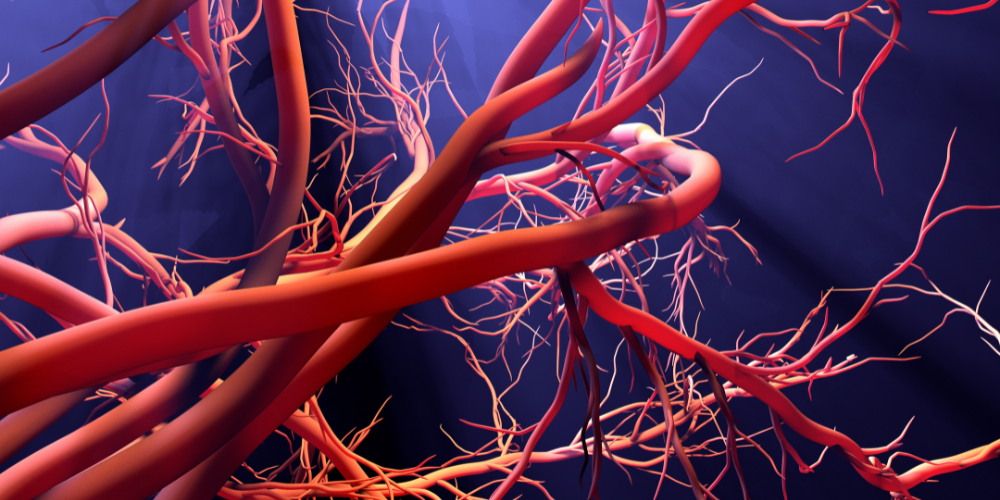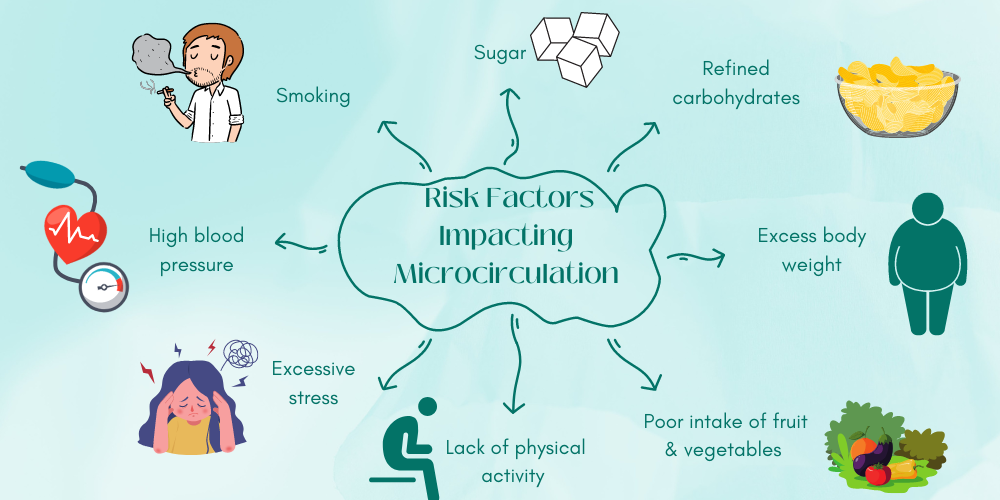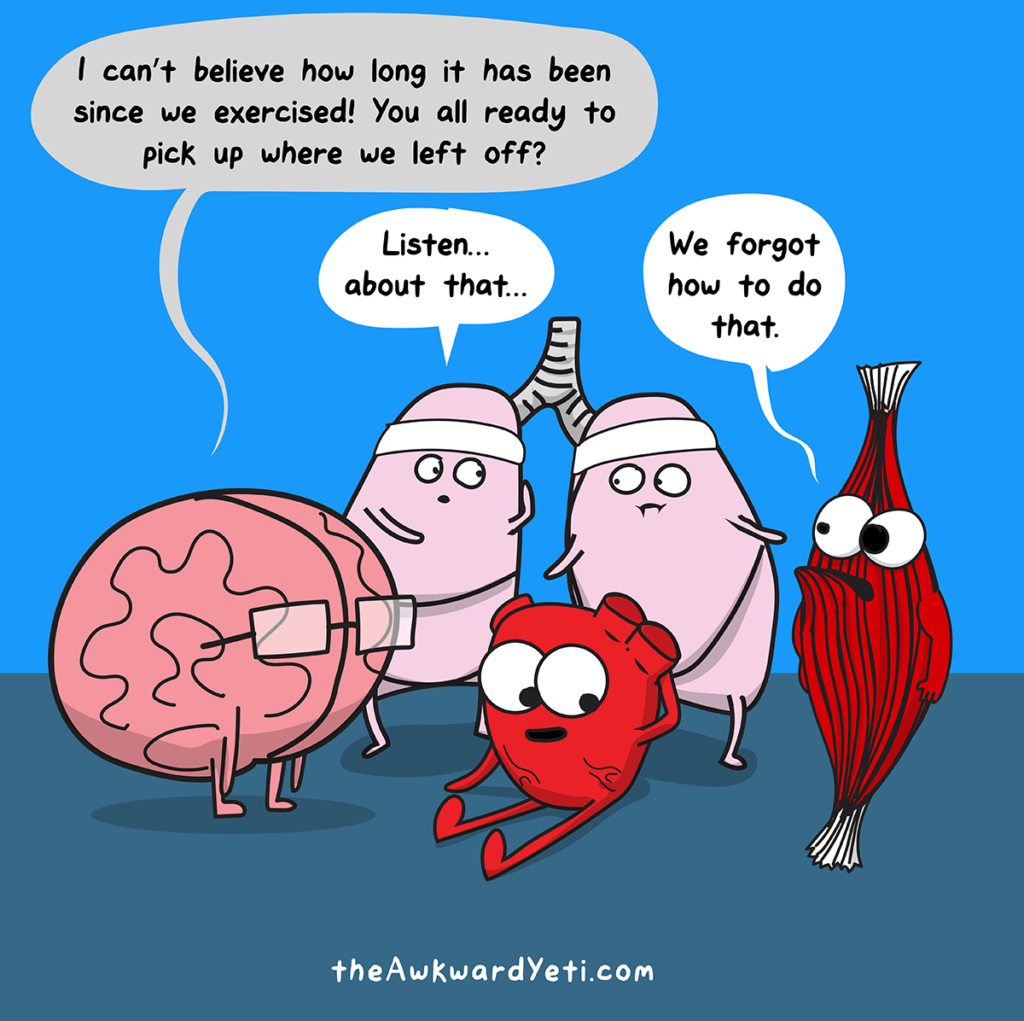Microcirculation refers to the collection of the smallest blood vessels in the body, including arterioles, capillaries, and venules, which are responsible for delivering oxygen and nutrients to the cells of the body. Poorly functioning or damaged endothelial cells can lead to various diseases and health issues. In this article, we will explore the impact of microcirculation on our health and how we can nurture it naturally.
What is Microcirculation?
The circulatory system plays a vital role in transporting essential nutrients, oxygen, carbon dioxide, hormones, and waste throughout the body to support cell and tissue health. Microcirculation regulates blood pressure and blood flow and is involved in various physiological processes such as inflammation and immune responses. Endothelial cells line the interior of all blood vessels and create a thin, single-cell layer that controls the exchange of substances. The smallest blood vessels in the body, the arterioles, capillaries, and venules, make up the microcirculation network.

Exploring the Health Conditions Linked to Impaired Microcirculation
Various health issues can arise from dysfunctional microcirculation, including vision impairment, hearing loss, neuropathy, heart disease, kidney damage, liver damage, and osteoarthritis. For instance, Alzheimer’s disease can result from specific areas of the brain gradually becoming deprived of sufficient oxygen, nutrients, and blood supply. Additionally, retinopathy (eye damage), nephropathy (kidney damage), and neuropathy (nerve damage), all of which are harmful effects of diabetes on the body, are a direct consequence of damage to the endothelial lining caused by consistently elevated blood sugar levels.
Prevention First
To prevent issues with microcirculation, we can first address factors that negatively impact it. This includes proactively managing blood sugar levels by reducing sugar and refined carbohydrate intake, quitting smoking to improve blood flow, addressing high blood pressure early on, and maintaining healthy body composition. Excess fat tissue in the body requires additional oxygen and nutrient supply, which can increase the amount of circulating blood and put extra pressure and wear and tear on the vascular system.

How to Support Microcirculation Naturally
In addition to addressing the above risk factors, one of the best ways to enhance microcirculation is also by adopting a healthy diet. Nitrate, present in various plant foods and herbs, can be transformed into Nitric Oxide, a crucial molecule that aids in maintaining healthy microcirculation. Specific plant foods and herbs contain polyphenols, which act as potent antioxidants to protect cells from reactive oxygen species, and harmful molecules that can damage the body and adversely affect microcirculation. To obtain a broad range of protective antioxidants and polyphenols, it is advised to increase the consumption of fruits and vegetables in general. However, here are 5 simple strategies that you can implement immediately.
- Boost dietary nitrate by increasing green leafy vegetables, and adding beetroot into your diet
- Increase cacao intake by having 85%-95% dark chocolate, approx. 20 g/day or the equivalent of cacao
- Increase berry intake by having 50-100 g/day of blueberries, strawberries, raspberries and blackberries (fresh or frozen)
- Fresh crushed raw garlic 1/2-1 clove/day
- Increase herbs and spices especially Green Tea (3-4 cups/day), Turmeric and Ginger

We can’t finish without mentioning exercise. Exercise is perhaps one of the most effective ways to improve microcirculation. It increases blood flow, facilitating the effective exchange of oxygen and carbon dioxide.
If you haven’t exercised for a while, start slowly and gradually increase the duration and intensity, but don’t put it off. The sooner you get back into the swing the easier it will be.
Start with 15 min daily walks with an aim to achieve 45min regular exercise activities at least 3-5 times per week.

Nurturing microcirculation is essential for optimal health, and we can achieve this naturally by adopting a healthy diet and lifestyle. By addressing factors that negatively impact microcirculation and incorporating antioxidant-rich foods into our diet, we can support our body’s microvascular system and prevent various health issues.
If you are, however, struggling to manage your blood sugar, cholesterol levels, blood pressure or body composition on your own or need individualised support to improve your microcirculation, don’t hesitate to seek out personalised support today. By working with a qualified healthcare professional who understands your unique needs and challenges, you can receive targeted recommendations and guidance that are tailored to your specific situation. With the right tools and resources, you can achieve your health goals and live your best life.
If you’re ready to take charge of your health and experience the many benefits of optimised microcirculation, blood sugar regulation, cholesterol and weight management, book an appointment or a free discovery call today.